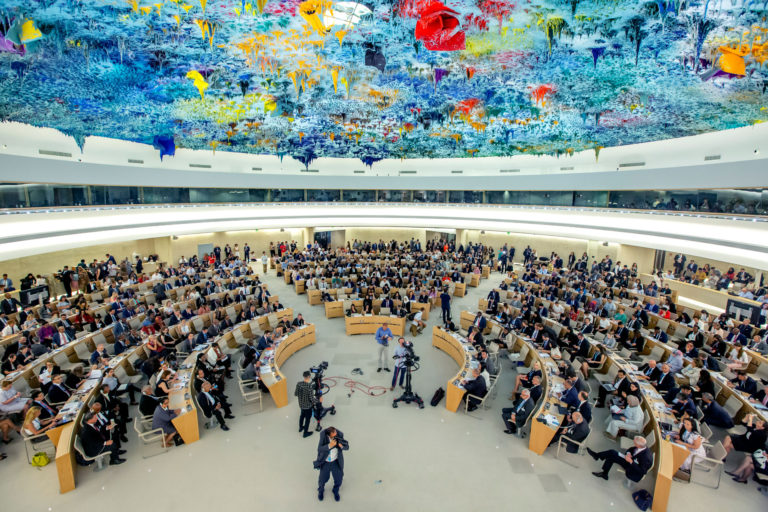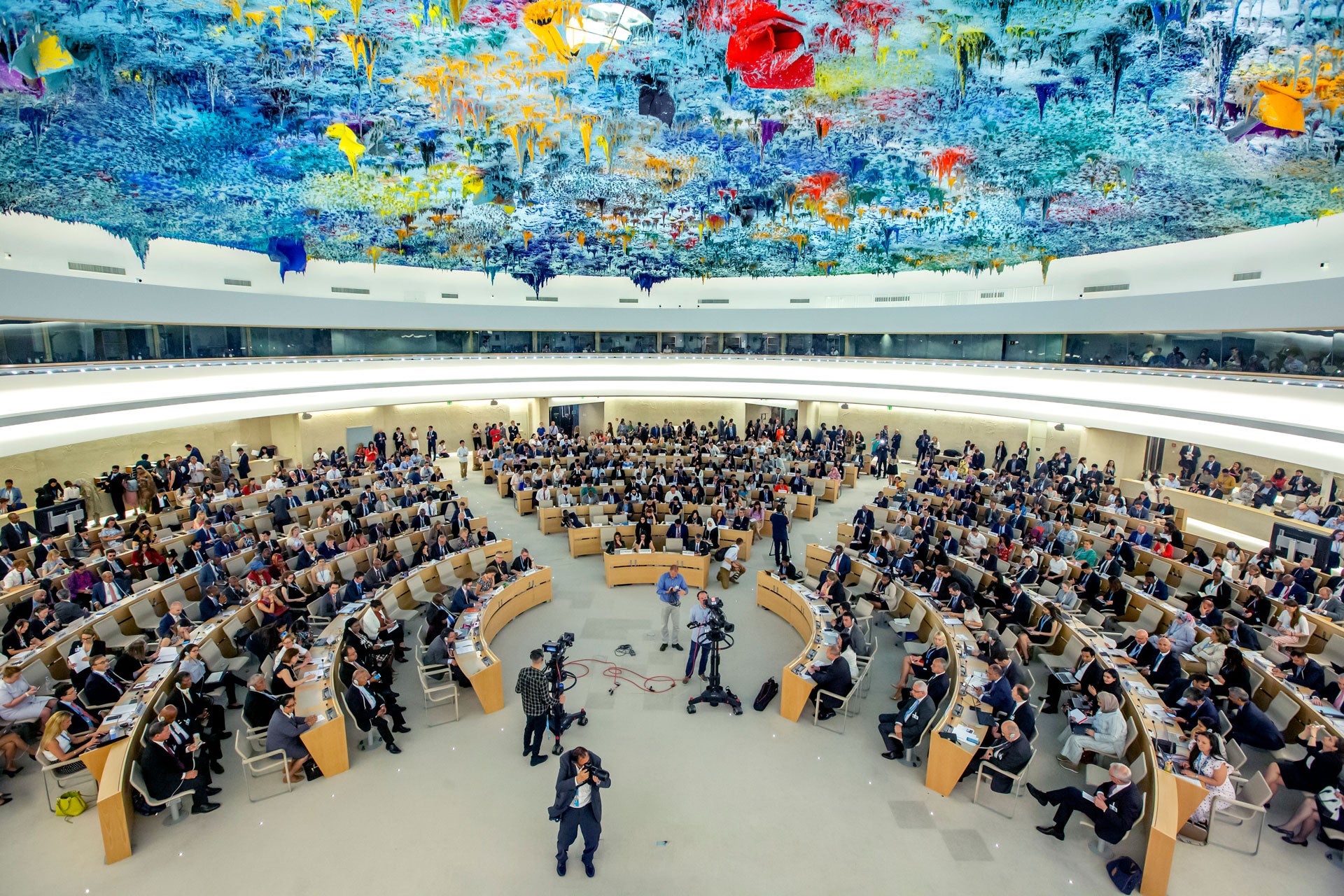

(Geneva) – Saint Lucia and Saint Kitts and Nevis should decriminalize same-sex relations and adopt comprehensive anti-discrimination legislation protecting lesbian, gay, bisexual, and transgender (LGBT) people, Human Rights Watch said today.
During the Universal Periodic Review (UPR) of the two countries’ human rights records on June 19 and 20 at the United Nations Human Rights Council, United Nations member states expressed serious concern over the nations’ laws that criminalize same-sex sexual conduct, in violation of international human rights law. Both countries prohibit “buggery,” imposing sentences of up to 10 years. Saint Lucia also criminalizes “gross indecency” in private between consenting persons of the same sex.
“While colonial-era buggery and gross indecency laws in Saint Lucia and in Saint Kitts and Nevis are seldom enforced against consenting people, their impact is pernicious,” said Cristian González Cabrera, LGBT rights researcher at Human Rights Watch. “Laws criminalizing same-sex conduct reinforce prejudices and provide social and legal sanction for discrimination, violence, and prejudice against LGBT people.”
Established in 2006, the UPR involves a comprehensive review of the human rights records of all UN member states by other countries every five years. Nongovernmental organizations, as well as the country under review, can contribute reports to inform the review process. Saint Lucia and Saint Kitts and Nevis are required to respond to the recommendations by June.
UN member states also said that Saint Lucia and Saint Kitts and Nevis should adopt comprehensive laws that prohibit discrimination on grounds of gender identity and sexual orientation, such as in housing, education, or health care.
A 2018 Human Rights Watch report “‘I Have to Leave to Be Me’: Discriminatory Laws against LGBT People in the Eastern Caribbean” documented discrimination, violence, stigma, and prejudice against LGBT people in Saint Lucia and in Saint Kitts and Nevis.
Toby, a 38-year-old gay man in Saint Lucia, told Human Rights Watch that exclusion and ostracism by his family drove him to five suicide attempts and to leave home. Toby also said members of the public pelted him with stones in 2015 during Carnival. In April 2016, he and his partner were attacked as they were entering their home one afternoon: “[I knew] it was motivated by us being gay because the term ‘buller’ was used. As we were entering the house, a car pulled out, two persons jumped out … a gun was raised and they tried to pull the trigger, but the trigger did not work. I told my boyfriend to run. They stabbed me, several times, the deepest one was below the navel. My boyfriend was also attacked with stones.”
Nicholas, a 20-year-old gay man from Saint Kitts and Nevis, told Human Rights Watch he lived with constant fear and uncertainty. “You are not safe,” he said. “You have to hide who you are. Otherwise they will get physical, shouting things … I was threatened by my own mother, [she told her sons that] if any of us is ‘anti-man’ she would kill us.” When Nicholas and his boyfriend were outed on social media while they were both high school students, Nicholas was taunted and aggressively harassed for the remainder of his school days. Nicholas experienced suicidal thoughts and once attempted suicide due to social exclusion.
International human rights law establishes that matters of sexual orientation and gender identity, including consensual sexual relations, are protected under the right to privacy and the right to be protected against arbitrary and unlawful interference, or attacks on private and family life and one’s reputation or dignity. Criminalizing same-sex intimacy violates these international standards, as the UN independent expert on protection against violence and discrimination based on sexual orientation and gender identity has affirmed.
The Organization of American States has urged states “to adopt the necessary measures to prevent, punish, and eradicate” discrimination based on sexual orientation and gender identity. Core treaties like the International Covenant on Civil and Political Rights, the International Covenant on Economic, Social and Cultural Rights, and the American Convention on Human Rights – which Saint Lucia and Saint Kitts and Nevis should ratify, as many states recommended during the review – have been interpreted by courts and authoritative treaty bodies to ban such discrimination, as have a variety of other international instruments and sources of law.
“Saint Lucia and Saint Kitts and Nevis should heed the recommendations of UN member states and provide their residents protection on the basis of sexual orientation and gender identity,” González said. “LGBT people are part of the social fabric of the island nations and deserve the same respect and rights as everyone else.”
Background
Section 133 of Saint Lucia’s Criminal Code on “buggery” criminalizes consensual same-sex conduct. Section 132 of the Code on “gross indecency” exempts from punishment any act “committed in private between an adult male person and an adult female person, both of whom consent,” but lacks protection for private acts between same-sex persons.
Saint Kitts and Nevis’ Offences Against the Person Act 1986, Chapter 4.21, Section 56 criminalizes “sodomy and bestiality” and defines the terms by referencing “the abominable crime of buggery, committed either with mankind or with any animal.” Section 57 of the same Chapter allows courts to add “hard labor” to a criminal sentence.
Neither country has a comprehensive law that prohibits discrimination on grounds of gender identity and sexual orientation. Section 131 of Saint Lucia’s 2006 Labour Act does prohibit employers from “unfairly dismissing” a person on the basis of their sexual orientation or sex, but does not explicitly prohibit such dismissal on the basis of gender identity.